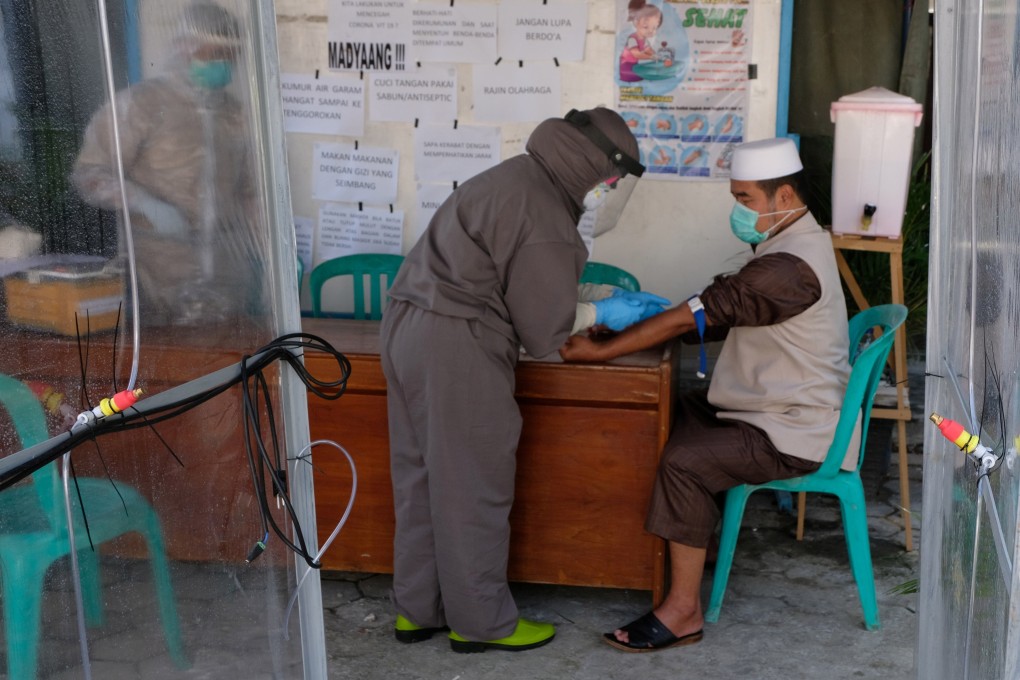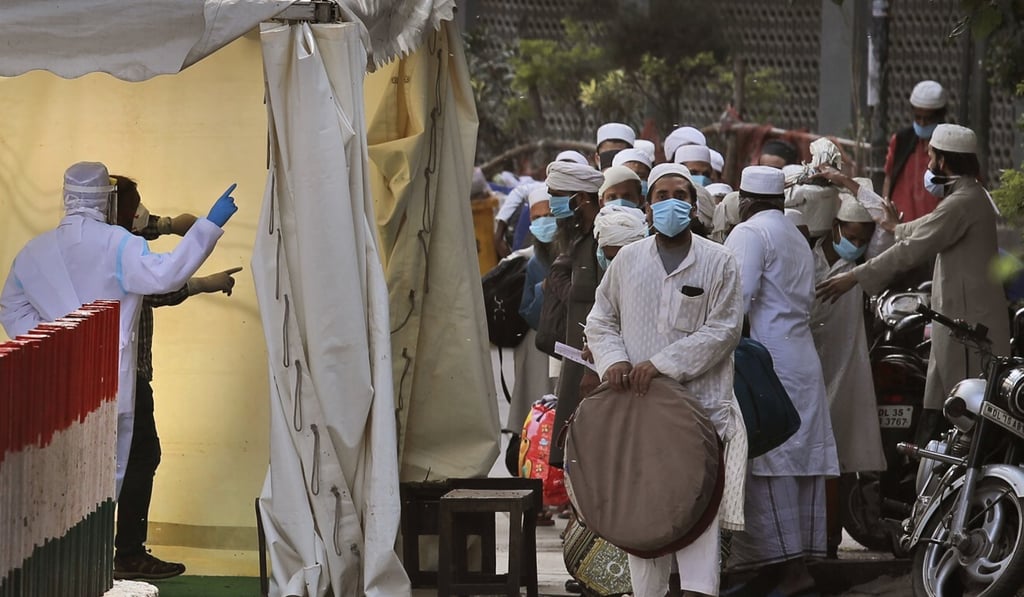Advertisement
Indonesian, Malaysian Tablighi Jamaat members left stranded by India’s coronavirus lockdown
- Restrictions on international travel make it difficult to repatriate the 727 Indonesians and 17 Malaysians who attended a religious gathering in March
- Concerns have also been raised that the group’s members risk starting a wave of new infections by returning to their respective countries
Reading Time:4 minutes
Why you can trust SCMP

Indonesia is trying to repatriate 727 of its citizens from India who attended a mass gathering organised by Muslim missionary group Tablighi Jamaat in New Delhi in March and ended up trapped by the country’s lockdown to battle the coronavirus outbreak.
The Indonesians form the bulk of more than 1,000 foreigners from Asia and the Middle East who attended the ijtema gathering and were not able to leave the country, with the group including 17 Malaysians. Some of the foreigners were quarantined by Indian authorities.
Among the Indonesians, 75 have tested positive for Covid-19, said Indonesian Foreign Ministry spokesman Teuku Faizasyah. At least 10 members were detained, charged and fined for visa violation offences, he added.
Advertisement

Faizasyah said the ministry was trying to get its citizens home but “realistically speaking”, they would most likely be repatriated after India’s lockdown ends later this month and international flights are restarted.
Advertisement
Meanwhile, “the embassy and consulate-general in India are trying their best to assist with basic needs,” he said.
Advertisement
Select Voice
Choose your listening speed
Get through articles 2x faster
1.25x
250 WPM
Slow
Average
Fast
1.25x